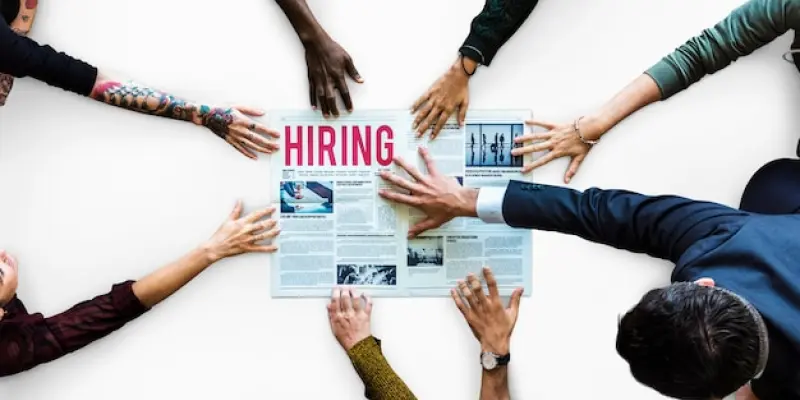In today’s rapidly evolving technology landscape, artificial intelligence (AI) is increasingly making its mark on various industries, including human resources. Specifically, organizations are leveraging AI to revolutionize soft skills assessments in hiring. One notable example is HiringBranch’s Soft Skills AI™, which recently received the “Best Innovative or Emerging Tech Solution” award in the HR Tech Awards. This accolade has spotlighted the potential of AI-driven assessments to enhance the hiring process by providing more accurate, efficient, and fair evaluations of candidates’ soft skills.
Transformation of Hiring Processes
The traditional approach to assessing soft skills, often relying on multiple-choice questionnaires and subjective interpretations, has shown limitations in accurately capturing a candidate’s interpersonal and communication abilities. AI’s introduction in this domain promises a transformative shift. HiringBranch’s platform, recognized among the top 1% of firms by the HR Tech Awards, showcases the tangible benefits of integrating AI in talent acquisition. For instance, a major telecom company reported a 50% reduction in assessment time and a significant drop in the 90-day attrition rate, from standard industry figures to just 10%, due to the realistic job previews offered by AI-powered scenario-based assessments.
These advancements have prompted hundreds of employers to turn to AI-driven solutions for guidance in streamlining their hiring processes. The success of AI assessments lies in their ability to analyze real-time conversations, offering a more dynamic and practical evaluation of soft skills compared to static multiple-choice tests. This technology is not only speeding up the hiring process but also enhancing it by providing insights into candidates’ abilities in a real-world context. Companies like Bell Canada and Infosys have experienced notable improvements, with interview times reduced by over 80% and mis-hire rates falling to as low as 1%.
Industry-wide Implications
The recognition and success of AI platforms like HiringBranch’s highlight a broader shift in the hiring landscape. The efficiency and accuracy these systems bring are particularly valuable in high-volume hiring environments, where speed and precision are crucial. By automating parts of the screening process, AI frees up human resources professionals to focus on more strategic tasks, while ensuring a higher quality of hire. CEO Stephane Rivard emphasized that winning such an award has bolstered confidence in their skills-based hiring approach, especially for customer-facing roles, demonstrating the substantial impact AI can have across various sectors.
Moreover, AI-powered assessments contribute to fairer hiring practices by minimizing human biases. The use of standardized AI-driven evaluations helps mitigate unconscious biases that can influence decision-making. This aligns with growing industry demands for diverse and inclusive workplaces. The data-driven insights gathered through AI tools provide a more objective basis for hiring decisions, fostering an equitable hiring environment. Consequently, the adoption of AI in soft skills assessments is not just a technological upgrade but a step towards more ethical hiring practices.
Future Considerations
As AI continues to evolve, its applications in soft skills assessment are expected to become even more sophisticated. The ongoing advancements will likely include better natural language processing capabilities and more nuanced emotional intelligence evaluations. Companies harnessing this technology will have a competitive edge in attracting and retaining top talent. However, the introduction of AI in hiring also raises significant discussions about data privacy, ethical considerations, and the balance between AI efficiency and human judgment.
For organizations considering the adoption of AI-based assessments, it’s essential to maintain a critical approach, ensuring that these tools are used responsibly. This includes transparent communication with candidates about the use of AI in the hiring process and safeguards to protect sensitive information. Ultimately, the goal is to complement traditional methods with AI-enhanced evaluations, achieving a harmonious blend of technology and human insight.
Transformative Potential
In today’s fast-paced and ever-changing technology landscape, artificial intelligence (AI) is becoming increasingly influential across various industries, including human resources. Organizations are specifically using AI to transform the way they assess soft skills during the hiring process. One standout example is HiringBranch’s Soft Skills AI™, which has recently garnered attention by winning the “Best Innovative or Emerging Tech Solution” award at the HR Tech Awards. This prestigious recognition has highlighted the significant potential of AI-driven assessments to enhance the recruitment process. By utilizing AI, companies can conduct more accurate, efficient, and fair evaluations of candidates’ soft skills, ensuring that they identify the best fit for their teams. The integration of AI in soft skills assessments is revolutionizing the traditional hiring methods, making it easier for HR departments to streamline their processes and focus on finding the right talent. Overall, the adoption of AI in hiring continues to unlock new opportunities for both employers and prospective employees.

